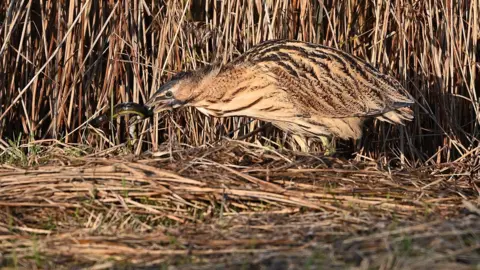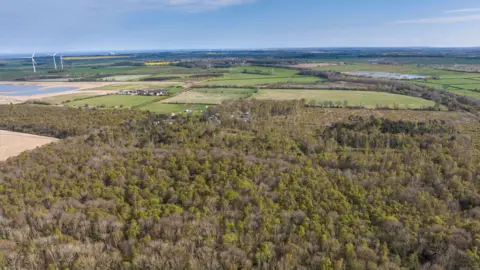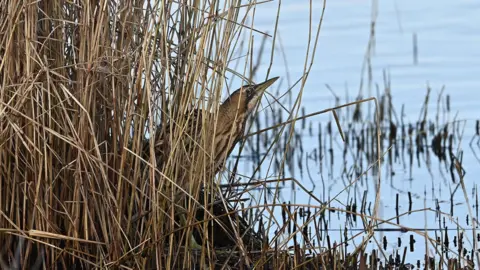Wildlife trust hopes bitterns start to breed
 Dave Ruscombe
Dave RuscombeMore frequent sightings of a rare marsh bird at nature reserves have prompted hopes they may start to breed.
Northumberland Wildlife Trust said bitterns, a member of the heron family, have overwintered regularly in recent years at several of its sites at Druridge Bay.
The charity is running a project, Biodivesity Boost, to create better habitats for the birds with a mixture of reed beds, ditches and pools to encourage them to stay for the spring breeding season.
Lee Rankin of the trust said: "It happened before with the marsh harriers, so I'm hoping we can do the same with bitterns."
 Jason Friend
Jason FriendBitterns were driven to extinction in the UK by the 1870s due being hunted for food and the draining of their wetland habitats for agriculture.
Conservation efforts have helped the population to increase with the RSPB reporting the birds had had a "record-breaking year" in 2021, with 228 males counted, up from 209 in 2019.
But they have not bred in Northumberland for a number of decades.
"We used to go two or three years without seeing one, but since we improved the reed beds at Cresswell and Chevington, we've seen them more and more," Mr Rankin said.
 Dave Ruscombe
Dave RuscombeThe trust's hopes have been boosted by a grant of £750,000 to increase biodiversity by creating new habitats.
"Bitterns like a bit of variety, they like reeds to be different ages and different heights so we've been cutting channels through the reeds at East Chevington to create more space for them to feed," Mr Rankin said.
"We hope that means they are more likely to stay and start to breed - they're a very special bird."
Follow BBC North East on X, Facebook, Nextdoor and Instagram. Send your story ideas to [email protected].
